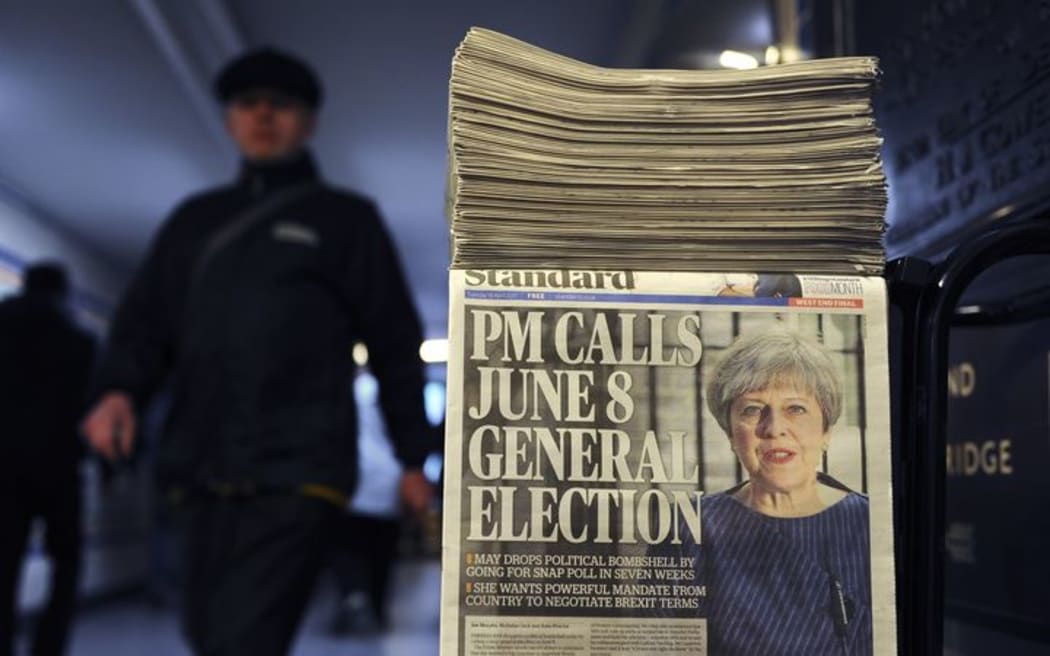The UK is going to the polls – again - in seven weeks following the shock announcement yesterday of a snap election.
Announcing her intention of an 8 June election, Prime Minister Theresa May said she needed "to secure the strong and stable leadership” the country needs to see it through Brexit and beyond.

Photo: AFP
This election is three years ahead of schedule. Previously May had ruled out an early election.
The Conservatives are on average 15 percent ahead of Labour in recent polls.
Professor of politics at Strathclyde University, John Curtice, is considered one of Britain's top polling experts. He thinks the temptation to politically wound Labour was too great for May to resist.
“The decline in support for the opposition Labour Party in recent weeks and months has meant that the pressure to do so, and the opportunity to do so, just became too much of a temptation.”
She has a majority of 12 in the House of Commons at the moment and has managed to steer all her Brexit legislation through parliament until now, but Curtice says she wants a greater buffer.
“Down the track there may be more divisions in her party when some of the details emerge and compromises have to be made.”
If successful, the ploy also means the election after this one will be in 2022 and that could allow time for whatever deal May manages to sign with Europe to fade from the collective memory. The date for exit is 2019.
So why has this happened when the UK has fixed terms? One of the ways to get around a fixed five year term is if two thirds of the House of Commons vote in favour of an early election.
On hearing the announcement yesterday opposition leader Jeremy Corbyn said he welcomed the move which Curtice says surprised him.
“The Labour Party now finds itself, officially at least, supporting the move and are forced to vote in favour of this. If the Labour Party had perhaps been not so quite forthcoming, Theresa May not so sure whether this ruse would work.”
Curtice says despite the fixed term parliamentary system, speculation has been rife on a premature election since the Brexit vote last year. But there are, he says, some risks to May.
“She is risking three years in order to gain two.
“Theresa May does need to do very well indeed in terms of the national vote to get the very large majority that I think she now aspires to.”
Curtice says May is banking on the Labour campaign, a party divided over Brexit, imploding.

